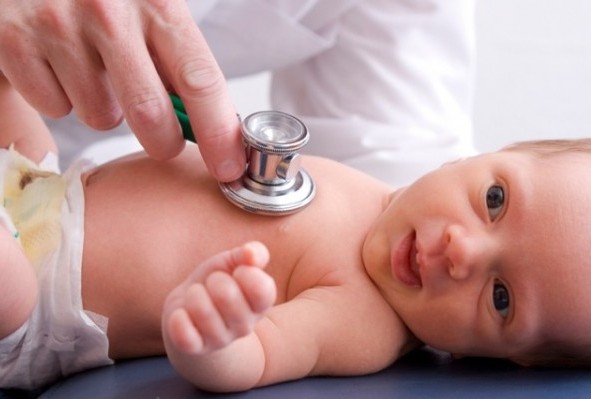
Whooping cough (also known as ‘pertussis’) is a highly contagious bacterial infection of the lungs and airways. The disease is highly infectious and most serious in babies under the age of 12 months.
Babies are at greatest risk of infection until they can have at least two doses of the vaccine (minimum 4 months old) as the mother’s antibodies do not provide reliable protection.
It’s very rare for children who have been immunised against whooping cough to get the disease – and if they do, it’s usually not as serious. The condition usually begins with a persistent dry and irritating cough that progresses to intense bouts of coughing. These are followed by a distinctive ‘whooping’ noise, which is how the condition gets its name.
Other symptoms include a runny nose, raised temperature and vomiting after coughing.
The incubation period for whooping cough is roughly between six to 21 days with its infectious period lasting from the first signs of the illness until about six weeks after coughing starts.
If an antibiotic is given, the infectious period will continue for up to five days after starting treatment. Antibiotics need to be given early in the course of the illness in order to improve symptoms.
Check your symptoms with healthdirect’s Symptom Checker to get advice on when to seek medical attention.
Added protection for infants
It is now recommended that all pregnant women receive a pertussis (whooping cough) vaccination during their third trimester (ideally at 28 weeks). A combination of antibodies being passed through the mother’s bloodstream and the reduced risk of the mother contracting the disease makes this an ideal time to administer the vaccine. Most states now offer the pertussis vaccination for free to expectant mothers. Speak to your doctor or antenatal care provider to schedule an appointment.
Fathers, grandparents and anyone else who is likely to come into contact with newborns should see their doctor to get a pertussis booster at least two weeks before the baby is born.

